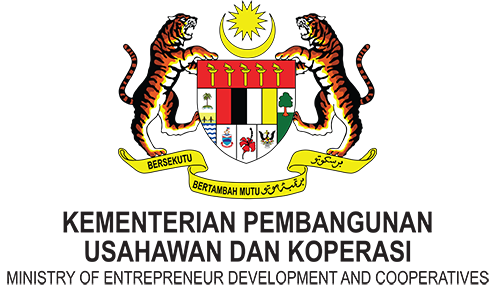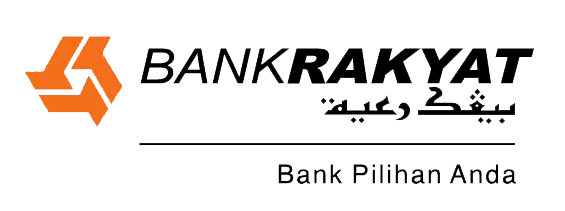The themes of the Shared Prosperity Vision (SPV) and Budget 2020, and popular reactions to them, reveal yearnings for a system that serves everyone and looks out for all underprivileged persons. They also show Malaysian tendencies to deflect or defer honest reckoning with the seemingly complicated and divisive issue of race-based policies.
It need not be so complicated and divisive. Malaysia has a chance to reset the narrative and perhaps forge a new consensus by first clarifying precisely where public policy guarantees basic needs and redresses poverty, and then distinguishing the specific policies targeting population groups as beneficiaries, whether bumiputeras, Indians or Orang Asli. This second set of policies revolves around promoting capability and participation, not providing basic needs, and they must be handled purposefully and effectively, instead of the current tendencies to either sidestep or switch on autopilot.
Prime Minister Tun Dr Mahathir Mohamad’s SPV launch speech and Finance Minister Lim Guan Eng’s budget speech both commit to providing decent living standards for all. The key thrusts of both the SPV and Budget 2020 are eminently agreeable and assuring: grow the economy and expand opportunity while ensuring equitable outcomes and inclusiveness.
However, the emphasis on bumiputera development in the SPV and their familiar and rather routine appearance in Budget 2020 continue to polarise society. Advocates declare that the bumiputera community lags in income and wealth, backed by statistics in the SPV. Opponents feel that such policies should have no place in Malaysia Baru, and trot out the trite line that if we just help the poor regardless of race, then we can dispense with these race-based policies.
The good thing is, many parties show an interest in this new vision. But all sides talk past each other and no one tries to fit the pieces together.
The plain fact is, “pro-B40” policies and pro-bumiputera policies have continually co-existed in Malaysia, each dealing with a different set of problems. They do not cancel each other out; one cannot be taken away and replaced with the other.
Providing aid to the poor and protecting the basic welfare of all are good and necessary, but primarily involve delivering basic needs like primary and secondary schooling, healthcare, minimum wage, social grants and such. These have very little to do with the bumiputera programmes, which concern higher education, high-level employment, business participation and SME development. Success, especially in broadly grooming a dynamic bumiputera managerial and professional class and competitive SMEs, hinges not on giving preference to the poor but on allocating opportunity to bumiputeras with capability and potential, and inducing them to learn and become competitive and self-confident.
We actually have some inkling of this, subliminally. Browse the budget speech and you will notice that every programme targeted at bumiputeras deals with promoting participation and upward mobility — NOT alleviating poverty. There is no Bantuan Sara Bumiputera or bumiputera minimum wages; national primary and secondary schools are open to all. But there are bumiputera SME loans and bumiputera special access to government contracts; by and large, special interventions for bumiputera education start at the post-secondary level.
The SPV presents a generational opportunity to inject desperately needed clarity and coherence. What should the SPV do?
First, categorically declare and systematically ensure that policies addressing basic needs and social protection are available to all Malaysians. A country longs for assurance that its citizens belong, that the system provides for them as equals. The contents of planning documents and annual budgets must be explicit about the wide range of provisions that fundamentally and unequivocally benefit everyone. Among these are primary and secondary schooling, healthcare and social protection.
The principle and application are straightforward: everyone is entitled to these provisions because they are grounded in basic human needs and the right to a decent standard of living.
These programmes emphatically operate on a needs basis because it is morally imperative and practically viable to ensure that those who do not meet these basic needs are provided commensurate assistance.
Second, coherently explain that policies designating ethnic groups as beneficiaries pursue the distinct objectives of building capability and broadening participation. The SPV must distinguish “race-blind” provision of basic needs and services from the array of other interventions which predominantly benefit bumiputeras, although in recent years, there has been some attention to the Indian and Orang Asli communities and the indigenous peoples of Sabah and Sarawak. To reiterate, the key areas of these agendas must be specified: tertiary education, upward mobility to professional and managerial positions, ownership and operation of business, and SME upgrading.
If it is a national priority for ethnically equitable participation — that is, for distinct groups to be represented in these arenas — then the key to success is for the opportunities to effectively cultivate capability and competitiveness. This poses tremendous challenges. A full appraisal will take up too much space here; suffice it to say that Malaysia’s track record is a chequered one. But like it or not, it is an unfinished business that must be dealt with squarely and robustly, not by embracing false promises of need-based, pro-B40 alternatives.
There is no escaping trade-offs and contestation among bumiputeras and between bumiputera and non-bumiputera interests, but these are dilemmas that cannot be resolved by simply invoking “let’s just help the poor”. The situation also calls for balancing preferential treatment with efforts to safeguard fair opportunity for all parties, or setting policy timelines and graduation or “sunset” clauses. Spreading opportunities more equitably and propelling beneficiaries to the ultimate goal of being capable and competitive calls for rigorous selection, effective monitoring, and exit strategies.
Budget 2020 informed us about a reopening of government contracting to new entrants, which was received exuberantly. Within the month of September 2019, 946 new G1 contractors were registered. But the next sentence blandly adds that “existing and new registered contractors will get to bid for government jobs.” We know that three-quarters of bumiputera contractors are in this smallest G1 tier (out of 7), and most remain there. In 2011, less than 0.02% graduated to a higher tier within that year.
The budget also allocated RM445 million for bumiputera SME development — mostly loans and grants — under Tekun, PUNB, SME Corp, Pelaburan Hartanah and Teraju, in a routine, almost nonchalant, manner unbefitting the responsibility and potentiality of these programmes.
We see no bold and visionary plans to steer contractors and bumiputera beneficiaries in general toward higher performance, to implement policies that spur upgrading, upscaling and graduating out of receiving preferential treatment.
It will take much more than Mahathir rebuking peoples’ attitudes and exhorting diligence and resourcefulness. Malaysia needs better policies and a clear formulation of how these will operate in a productive and fair manner.
The SPV must start by seeing things clearly and coherently.
Dr Lee Hwok Aun is a senior fellow at the ISEAS-Yusof Ishak Institute






















